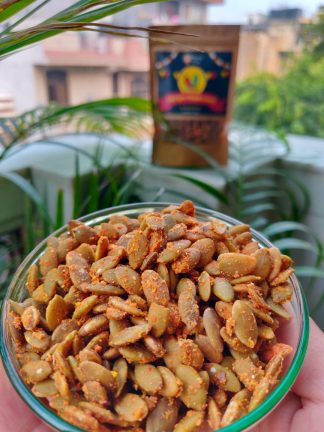
Pregnancy is a time of heightened awareness, especially when it comes to diet. Cloves, a common spice, often come into focus for expecting mothers. Let’s explore whether it’s safe to incorporate this aromatic bud into your pregnancy diet.
Cloves: A Brief Overview
Cloves are the flower buds of the clove tree, used as a spice in cuisines worldwide. They’re known for their intense aroma and a pungent, sweet flavor. Apart from culinary uses, cloves are renowned for their medicinal properties, thanks to the presence of compounds like eugenol.
Nutritional Value of Cloves
Cloves are not just flavorful; they are also packed with nutrients. They contain vitamins such as Vitamin E and K, minerals like calcium, iron, and manganese, and are rich in antioxidants and dietary fiber. This nutritional profile makes them a potentially beneficial addition to any diet, including that of pregnant women.
The Safety Profile of Cloves During Pregnancy
In Moderation
The consensus among health experts is that cloves, when used in their spice form, are generally safe to consume during pregnancy in moderation. They can be used to add flavor to various dishes and can contribute to the nutritional diversity of your pregnancy diet.
Caution with Concentrated Forms
However, caution is advised regarding concentrated forms like clove oil or supplements. These forms contain higher concentrations of active compounds and may pose risks during pregnancy. It’s generally recommended to avoid clove oil and supplements.
Potential Health Benefits
- Immunity Boost: The antioxidants in cloves can help in boosting the immune system, which is crucial during pregnancy.
- Digestive Health: The dietary fiber in cloves can aid in improving digestion and managing constipation, a common issue during pregnancy.
- Fetal Development: The presence of essential nutrients supports overall fetal development.
Potential Risks and Side Effects
- Excessive Consumption: Consuming cloves in large quantities might lead to complications. It’s essential to use them as a flavor enhancer rather than a primary ingredient.
- Clove Oil and Supplements: As previously mentioned, clove oil and supplements are best avoided due to their higher potency and potential risks.
How to Incorporate Cloves into Your Pregnancy Diet
- Cooking: Use ground or whole cloves to season dishes.
- Clove Tea: A mild clove tea can be a soothing addition, but ensure it’s taken in moderation.
- Avoid Medicinal Use: Refrain from using cloves as a remedy for ailments during pregnancy without consulting a healthcare provider.
Precautions and Consultations
- Consult Healthcare Providers: It’s always wise to consult with your healthcare provider before making any significant dietary changes during pregnancy.
- Watch for Allergies: Be mindful of any allergic reactions to cloves and discontinue use if necessary.
- Balance and Moderation: Remember, cloves should be a part of a balanced and varied pregnancy diet.
In summary, cloves can be a safe and beneficial addition to a pregnancy diet when used in moderation as a spice. However, concentrated forms like clove oil and supplements should be avoided. As with any dietary consideration during pregnancy, the key is balance, moderation, and consulting healthcare providers for personalized advice.
10 FAQs About Consuming Cloves During Pregnancy
1. Can I use cloves in my daily cooking during pregnancy? Yes, cloves can be safely used as a spice in your daily cooking during pregnancy. They add flavor and provide nutritional benefits. However, remember to use them in moderation.
2. Are there any risks associated with consuming cloves while pregnant? Consuming cloves in moderation is generally safe during pregnancy. However, excessive use, especially in forms like clove oil or supplements, may pose risks. Always consult with your healthcare provider for personalized advice.
3. Can cloves help with pregnancy-related digestive issues? Yes, cloves contain dietary fiber which can aid in digestion and help alleviate common issues like constipation during pregnancy.
4. Is it safe to drink clove tea while pregnant? Drinking clove tea in moderation is generally safe during pregnancy. However, it’s best to consult with your healthcare provider before including it regularly in your diet.
5. Can eating cloves boost my immune system during pregnancy? Cloves are rich in antioxidants which can help boost your immune system. This is beneficial during pregnancy when your body needs extra protection.
6. How can I incorporate cloves into my pregnancy diet? You can incorporate cloves by adding them to dishes while cooking, or by making a mild clove tea. Ensure you use them in small, flavor-enhancing amounts.
7. Should I avoid clove oil during pregnancy? Yes, it’s advisable to avoid clove oil and clove-based supplements during pregnancy due to their concentrated nature and potential risks.
8. What are the nutritional benefits of cloves for pregnant women? Cloves are rich in nutrients like vitamins E and K, and minerals such as iron, calcium, and manganese. They also offer dietary fiber and antioxidants.
9. Can cloves help in managing stress during pregnancy? The natural compounds in cloves may have stress-relieving properties. However, they should not be solely relied upon for managing stress. It’s always best to follow a comprehensive approach to stress management during pregnancy.
10. Are there any allergic reactions to be aware of when consuming cloves during pregnancy? While rare, some individuals may have allergic reactions to cloves. If you experience any adverse effects, it’s best to discontinue use and consult your healthcare provider.
Blog Tags for the Post
pregnancy nutrition, cloves benefits, safe spices during pregnancy, digestive health, immune system boost, culinary tips for pregnancy, natural remedies, antioxidant-rich foods, dietary fiber in pregnancy, stress management during pregnancy









